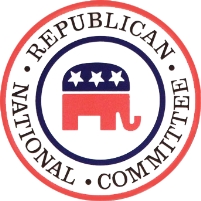Court Rules Republican National Committee Must Still be Monitored for Voter Fraud
Monday, March 19, 2012

With all the accusations of voter fraud Republicans have made against Democrats in recent years, it is easy to forget that it is actually the Republican Party that has been under court-ordered monitoring for potential race-based voter fraud for the past thirty years.
Heading into a presidential election widely expected to be close, the Republican National Committee (RNC) will be required to seek court approval for any voter-fraud-prevention plans it may have, just as it has for the past three decades, the U.S. Third Circuit Court of Appeals in Philadelphia has ruled. This requirement, originally established after the New Jersey Democratic State Committee alleged in 1981 that the RNC’s voter fraud activities really constituted intimidation of minority voters at the polls, was agreed to by the RNC as part of a “consent decree,” entered by federal district judge Dickinson Debevoise in 1982.
In 2009, the RNC asked Judge Debevoise to vacate the decree, and it was his denial of that request that the appeals court affirmed, although the judge did modify the decree somewhat, including providing for its expiration as of December 1, 2017, unless the Democratic National Committee is able to prove the RNC has violated the decree.
The sanctions have their roots in the 1981 New Jersey gubernatorial campaign, during which the RNC was accused of using a variety of tactics to reduce the number of minority voters. Most notably, they enlisted the aid of off-duty police officers and sheriffs to intimidate voters in minority neighborhoods by standing at polling places wearing armbands that said “National Ballot Security Task Force.” Some of the officers were armed. Rather than face a lawsuit or worse, the RNC agreed to comply with all state and federal laws protecting the right of qualified citizens to vote in all states.
Although the RNC now argues that changes in voter registration laws, political culture and early voting opportunities render the requirements an unnecessary infringement on its First Amendment rights, the appeals court found that suppression of minority voters is still an ongoing problem. The fact that the court has had to intervene against the RNC on three separate occasions–in 1987, 1990 and 2004–in response to similar voter suppression allegations against Republicans in Louisiana, North Carolina and Ohio, respectively, underscored the continuing need for the pre-clearance requirements.
During the 1986 Congressional campaign in Louisiana, the RNC was accused of mailing letters to African-American voters. If the letters were returned as undeliverable, the RNC put the voters on a list to challenge. The RNC was forced to produce a memorandum in which its Midwest political director told its Southern political director that “this program will eliminate at least 60,000–80,000 folks from the rolls . . . If it’s a close race . . . which I’m assuming it is, this could keep the black vote down considerably.” This led to a redefining of what the RNC could and could not do.
In 1990 the Republicans in North Carolina sent 150,000 postcards to voters in predominantly African-American precincts falsely stating that there was a 30-day minimum precinct residency requirement prior to an election. Although the district court in this case ruled that there was no proof that the RNC itself was involved in the scheme, it did rule that the RNC had violated the original consent decree by failing to give proper guidance to state Republican Party officials.
In 2004, the RNC was brought to court for using the same undeliverable letter scheme in Ohio. Finally, in 2008, the Democrats accused the RNC of violating the consent decree in New Mexico by trying to reduce the number of minority voters by hiring private investigators to examine the backgrounds of some voters.
-David Wallechinsky, Matt Bewig
To Learn More:
Watchdog Must Keep an Eye on RNC Activities (by Erin McAuley, Courthouse News Service)
Third Circuit Opinion (pdf)
- Top Stories
- Unusual News
- Where is the Money Going?
- Controversies
- U.S. and the World
- Appointments and Resignations
- Latest News
- Trump Orders ICE and Border Patrol to Kill More Protestors
- Trump Renames National Football League National Trump League
- Trump to Stop Deportations If…
- Trump Denounces World Series
- What If China Invaded the United States?






Comments